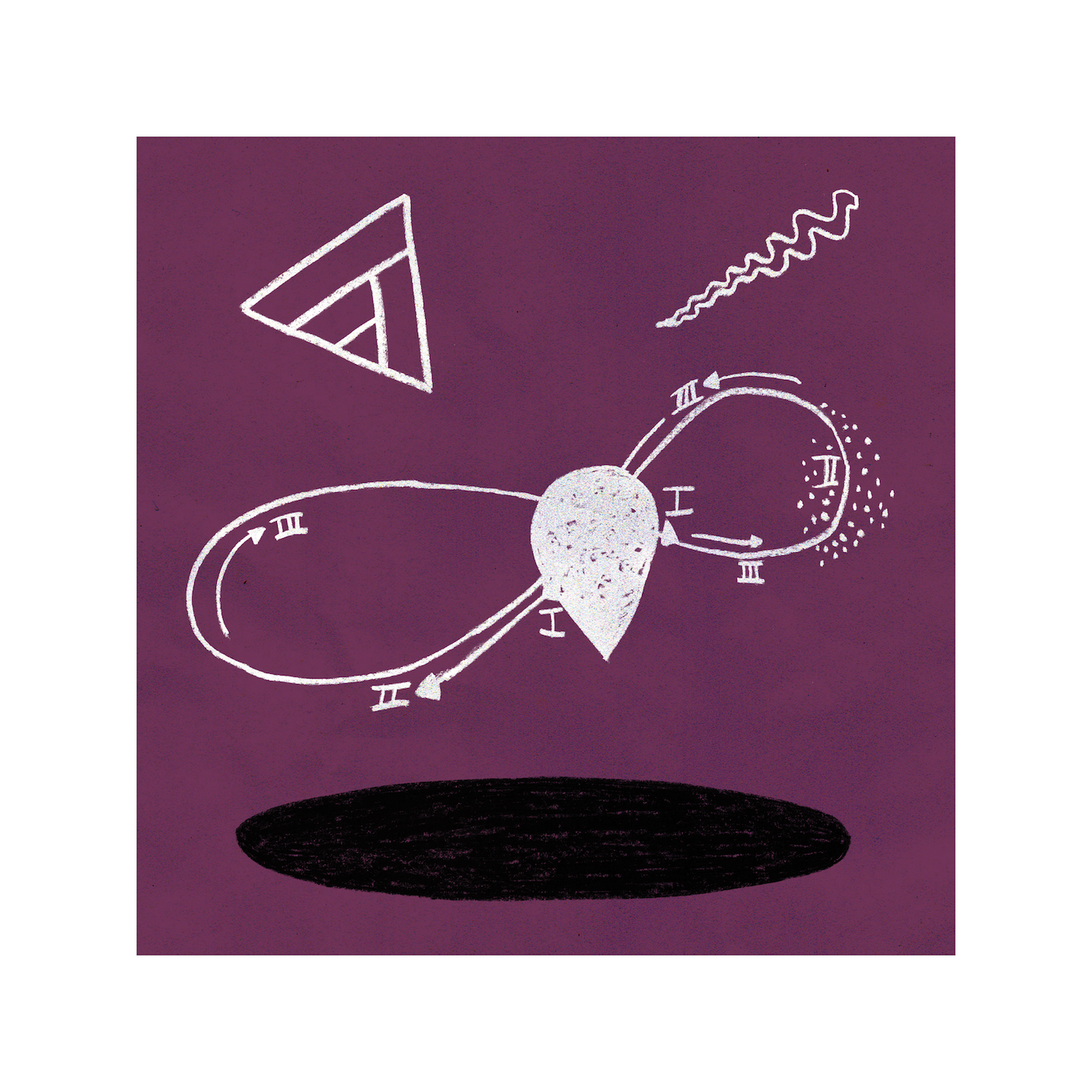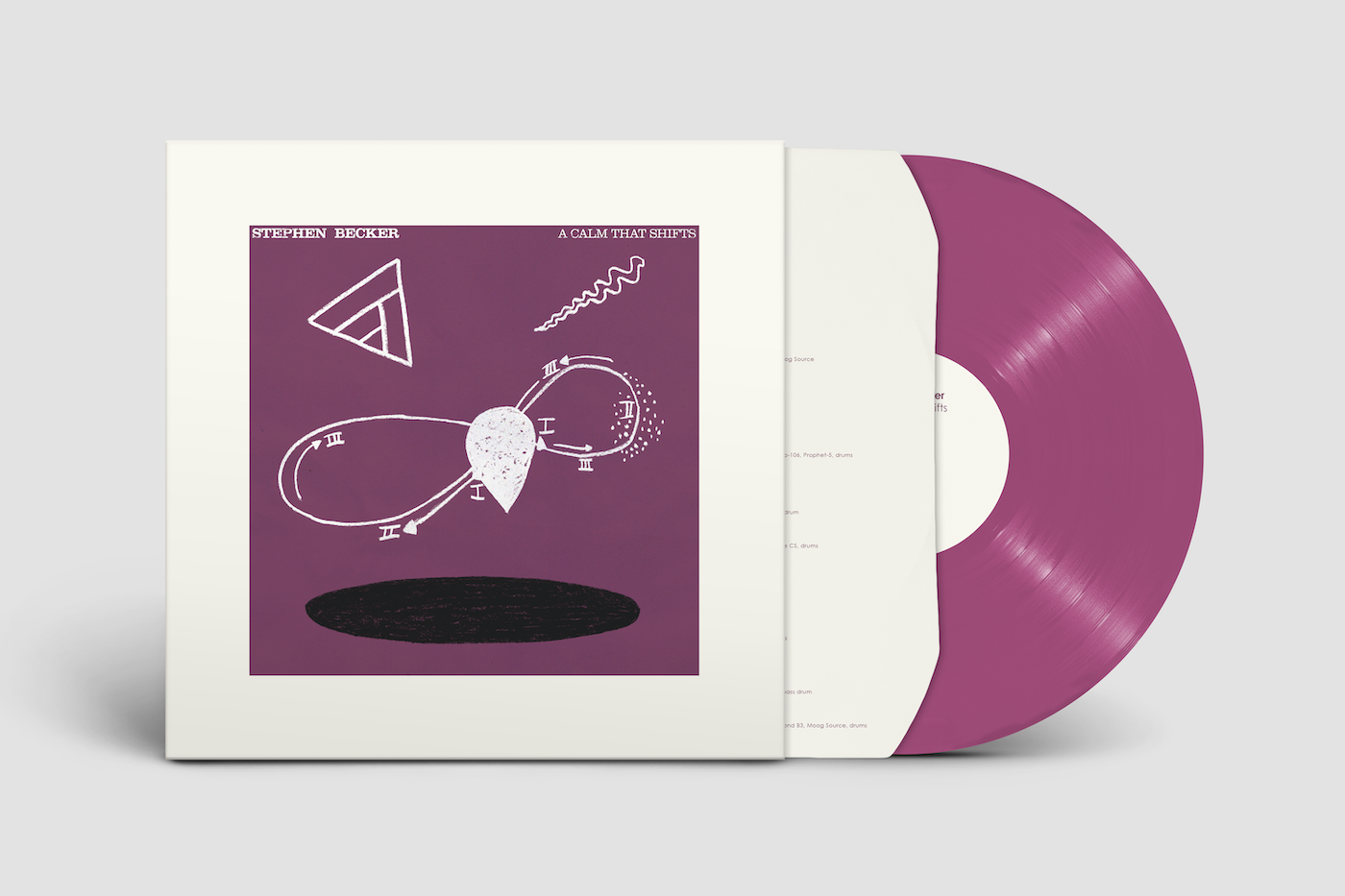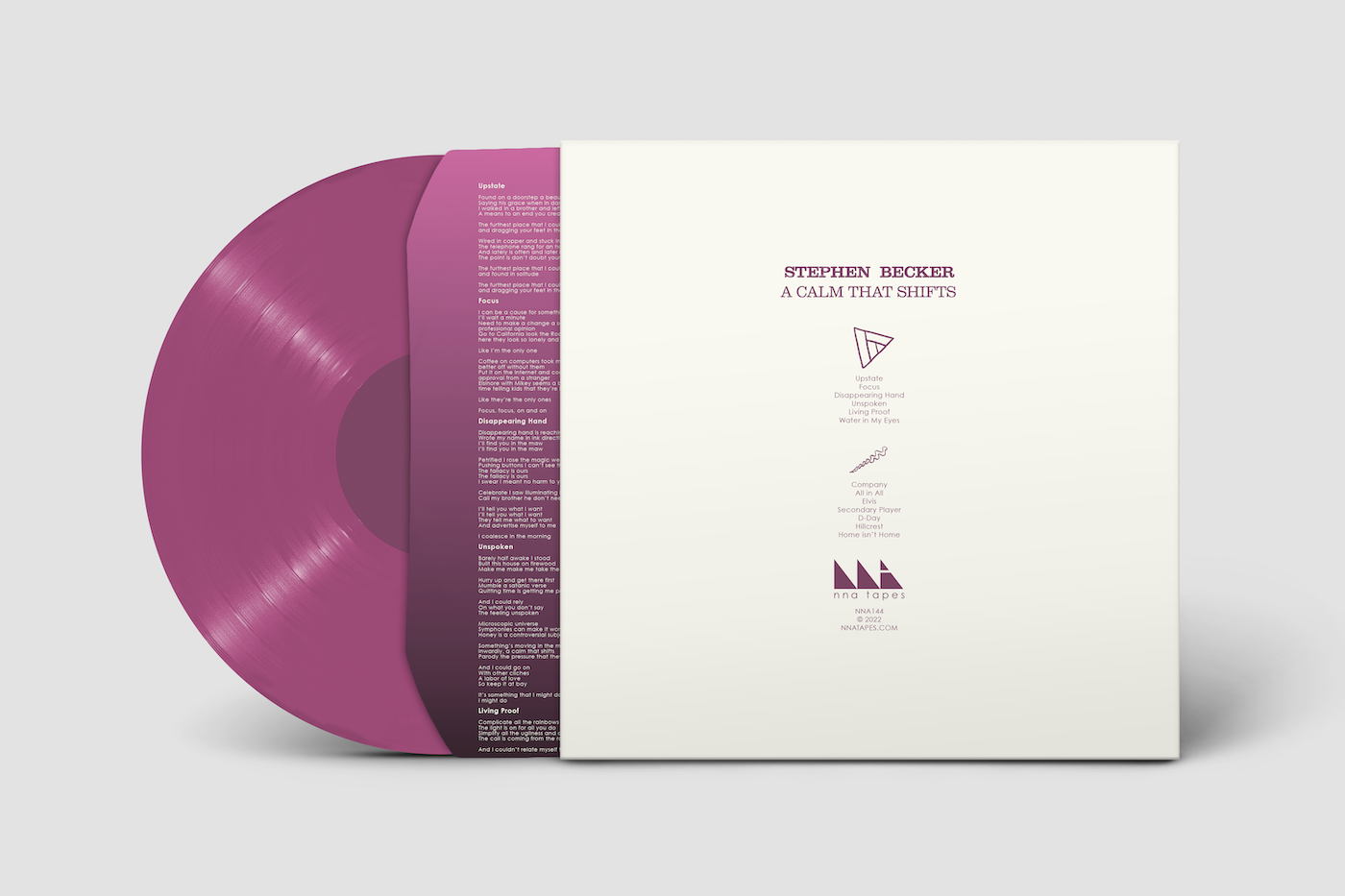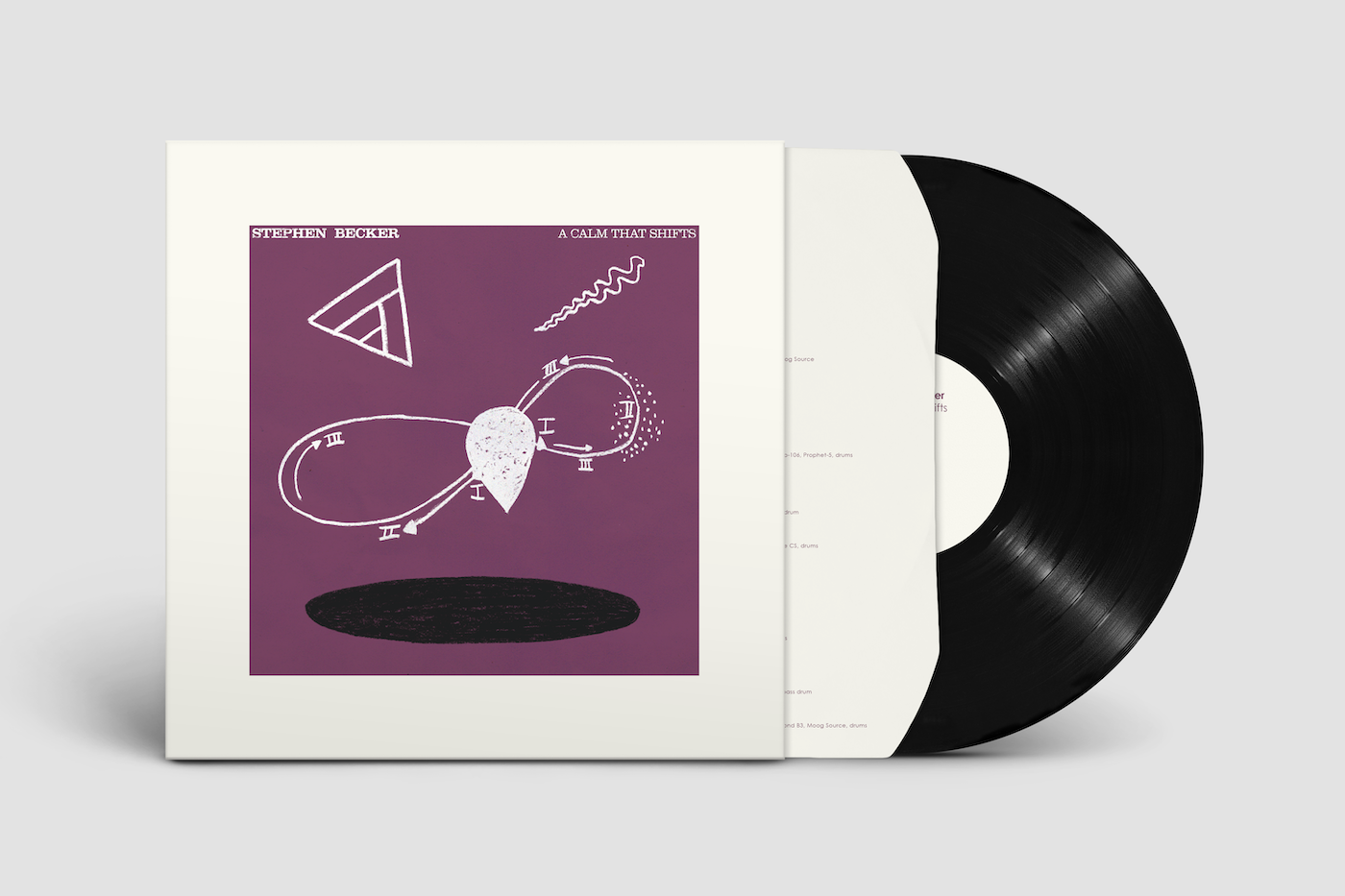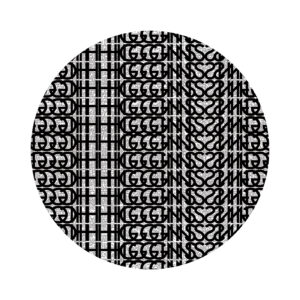Stephen Becker A Calm that Shifts [NNA-144]
Purple Vinyl, Black Vinyl, DigitalPRE-ORDER: Ships on release date - October 14, 2022
Tracklist
- Upstate
- Focus
- Disappearing Hand
- Unspoken
- Living Proof
- Water in my Eyes
- Company
- All in All
- Elvis
- Secondary Player
- D-Day
- Hillcrest
- Home Isn’t Home
Written and performed by Stephen Becker
Recorded, mixed and produced by Adam Hirsch at:
Tiny Telephone Recording in San Francisco, CA
The Creek in Oakland, CA
Figure 8 Recording in Brooklyn, NY
July 2018 – April 2021
Mastered by Jacob Winik
Cover art by Miles Wintner and Stephen Becker
It’s easy to become absorbed by the raw musicianship on display throughout A Calm That Shifts, Brooklyn singer-songwriter Stephen Becker’s debut full-length LP. Its psychedelic pop songs lean into hairpin turns in song structure, style, and emotional affect. Becker’s proficiency as a musician is breathtaking—he plays almost every instrument on the record—evidencing a formidable jazz pedigree and an appreciation for the technical prowess of progressive 2000s indie-rock units like Dirty Projectors, St. Vincent, and Grizzly Bear. It’s difficult to resist playing each of these tracks back to latch onto a musical throughline only caught after it was almost over: a bit of sinuous guitar and synth counterpoint, a pivot between a fractured groove and rhythmic malfunction, or a gorgeous Brian Wilson-reminiscent chord modulation.
But though Becker loves to push his own musicianship to its limit and revel in the element of surprise, he is most interested in smoothing over peaks and valleys—in “making complexity sound intuitive and digestible,” as he puts it. His vocals are muted and conversational, unifying these songs effortlessly. Sometimes he lapses into whispered, half-sketched narratives that recall heroes like Sibylle Baier and Elliott Smith; elsewhere, he spins sticky and enigmatic phrases out into cathartic mantras, channeling Thom Yorke or Björk’s high drama.
Recorded over the course of three years with his childhood friend and producer Adam Hirsch, the record touches on, among so much else, the breakdown of communication between family members, the NYC-specific illusion of a better life lived upstate, a documentary about Elvis’ later years, and Werner Herzog’s essays on film theory. But perhaps its central preoccupation—most clearly explored on “Unspoken”—were childhood memories of being told to speak up by teachers and other adults, and how the concept of quietness factors into the way he lives his life as a near-thirty-year-old.
“It was frustrating to be told to talk louder when I felt it was loud enough,” Becker recalls. “[The song] is about the impulse to move in the opposite direction and be even quieter, a meditation on how emotions and thoughts can be expressed without words, through actions alone.”
By point of contrast, other songs indict forms of metaphorical loudness. For instance, there is the “doomed population in a digital haze” projecting “holographic” selves—often, more successful versions of themselves. Becker grew up in Los Angeles, surrounded by the children of celebrities and aspiring artists striving to be famous or acting like they already were. On the hallucinatory acoustic ballad “Secondary Player,” Becker critiques the models of success he has gravitated towards as a working musician. One of the album’s most indelible couplets crops up here: “I used to have plans but now I just need some space/Let me play bass.”
There is a subtle affinity between Becker’s musical language and libretto on A Calm That Shifts that make the record feel like more than the sum of its parts, and a disarmingly earnest statement. The push and pull between extroversion and reticence in the music evokes Becker’s working model for a life well-lived: the attempt to preserve inner peace and represent one’s self honestly while fending off the myriad factors in the modern world which threaten to disrupt that balance.
Video












